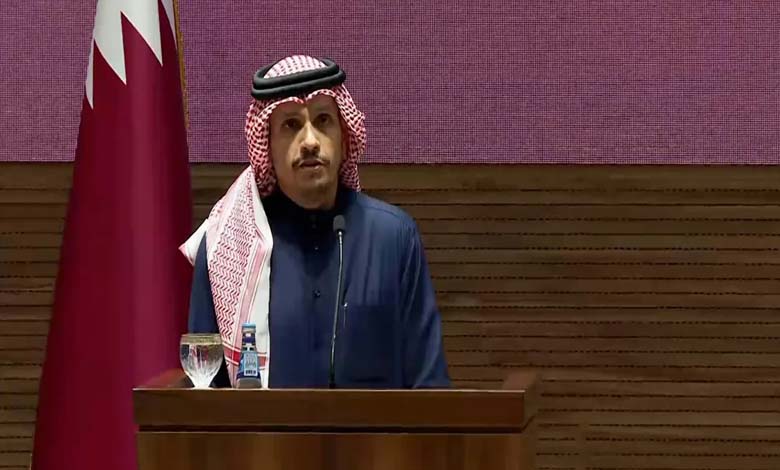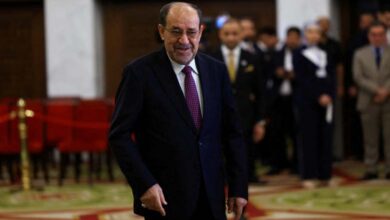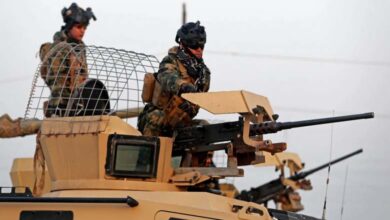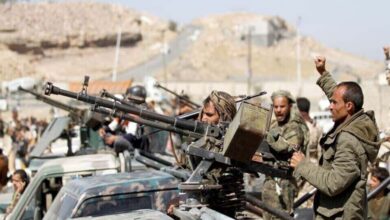Why Qatari Mediations Have Failed to Resolve More Than One Crisis

Doha no longer enjoys absolute trust as an “impartial” mediator—whether in Middle Eastern, African, or European crises—due to its ties with rebel or radical Islamist groups, or because of conflicts of interest and questionable funding.
Qatar, a wealthy Gulf emirate and one of the world’s largest gas producers, has recently become the focus of global attention, working on multiple fronts to act as a mediator in complex and sometimes bloody crises such as the Israeli war on Gaza. It has presented itself as a key player in reaching a ceasefire, which quickly collapsed—a diplomatic failure that is not an exception but rather part of a broader pattern of failures, as Doha has engaged in complex conflicts across Africa.
-
Qatari Mediator’s Withdrawal Does Not Affect U.S. Efforts for a Gaza Ceasefire
-
Belgium drops pursuit of Qatari minister in Qatargate scandal swap deal
Although Doha plays an active role in mediating regional and international conflicts, its efforts have not always been successful. The failure of Qatari mediations can be attributed to several interconnected reasons.
Many of the crises in which Qatar has intervened were extremely complex and deeply rooted, making it difficult to find compromises acceptable to all parties. For example, the Israeli-Palestinian conflict is marked by a long history of violence and mistrust, with fundamental issues such as borders, refugees, and Jerusalem making any durable agreement difficult to achieve.
Many believe that the conflict, which intensified after Hamas’s October 7, 2023, attack on southern Israel, followed by Israel’s deadliest retaliation in the history of the conflict, is far too large and complex for Doha to end—despite its good relations with both parties.
-
American-Qatari agreement puts the fate of Hamas and its leaders in Doha at stake
-
Leaks about the presence of Abdul Rahim Daglo in Qatar to meet the Qatari Prime Minister
The Qatari mediator tried to leverage its ties with Hamas to promote calm and end months of daily killings, while Qatar faced accusations from Tel Aviv and Washington of arming and funding the Palestinian Islamist movement.
It is also believed that Doha no longer enjoys absolute trust as an “impartial” mediator, whether in Middle Eastern, African, or Eastern European crises, especially since it sought a role in resolving the Russia-Ukraine conflict, due to its links with rebel or radical Islamist groups and its past involvement in paying ransoms to terrorist organizations—direct funding disguised as humanitarian aid.
-
Huge Qatari financial backing to lift Erdogan out of crisis ahead of elections
-
Unable to compete.. What is behind the Qatari-Iranian campaign against UAE companies?
Qatar made headlines through its chief negotiator, Minister of State for Foreign Affairs Mohammed Al-Khulaifi, as a mediator in the recently erupted conflict in the Democratic Republic of the Congo, where the M23 armed group, backed by Rwanda, made a series of swift advances in the country’s resource-rich east.
Al-Khulaifi stated: “This meeting helped open a real pathway toward de-escalation and agreement on an implementation mechanism,” adding: “We succeeded in establishing a flexible line of communication between the two sides, and we hope to achieve further successes that you will hear about in the coming days.”
-
From Amsterdam – New book calls for international campaign against Qatari violations
-
New agreements… Iran weaves its strings around Qatari economy
He added, after meetings between presidents, that Qatar had convinced the M23, Rwanda, and the DRC to “calm the situation” near the city of Walikale, a strategic mining hub, explaining that this allowed “a withdrawal from Walikale to the east, toward Goma. This move itself is, in our view, a positive development,” referring to the capital of North Kivu province in the DRC, under M23 control.
Al-Khulaifi emphasized that the United States is considered a “reliable partner” in the DRC, expressing his hope to discuss the conflict with U.S. envoy for Africa, Mossad Boules, in Washington in the coming days.
-
Erdogan receives Qatari Emir in Turkey
-
Former Qatari intelligence founder reveals reasons for media blackout on deteriorating health of Hamad bin Khalifa
Some also believe that regional and international conflicts of interest play a role in the failure of Qatari mediations. Other regional and international powers involved in these conflicts may have diverging interests and may not support an agreement that doesn’t align with their agendas, thus undermining mediation efforts.
At times, one or both parties may not be willing to make the necessary concessions to reach an agreement—due to rigid political or ideological stances or the belief that they hold the upper hand on the ground. The involvement of other external actors can also complicate or derail mediation, especially when aimed at defending opposing interests or backing a particular side.
-
New Qatari manipulation.. Doha plays a controversial role in Arab-Israeli relations
-
Qatari government attempts to appease public anger with pension increase
At the heart of this debate lies a question about the very nature of the mediator. Although Qatar enjoys international respect and maintains good relations with many actors, its small size and limited regional role may restrict its ability to exert enough influence to pressure parties into making difficult concessions. Additionally, some may view Doha with suspicion because of its ties with certain groups or states in the region.
Recently, Doha sought to play a role in the Russia-Ukraine crisis by moving closer to Moscow—a crisis in which Saudi Arabia, the UAE, and recently the United States are also involved, as part of broader efforts to end the war.
-
Qatari Army Chief of Staff meets with Israeli counterpart and agrees to install Israeli radars in Qatar
-
Qatari stock market collapses as Tamim visits US.. Are fears worsened among investors?
Qatar also attempted to reposition itself in the Iranian nuclear file by transferring American messages to Tehran and reaffirming its willingness to act as a mediator. But in previous years, Qatari attempts to resolve this crisis failed to ease tensions.
However, the failure of certain mediations does not diminish the importance of the role Qatar plays in seeking peaceful solutions to conflicts. Even when they do not result in a full resolution, these mediations often help reduce tensions and open communication channels that could prove decisive in the future—which allows Qataris to promote their diplomatic efforts as a success where others have fallen short.












